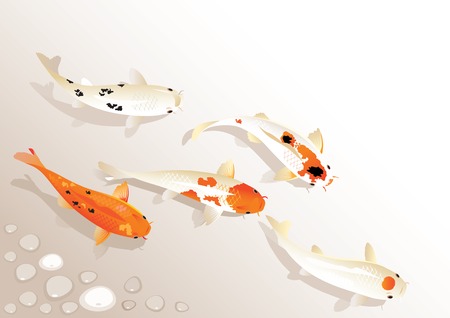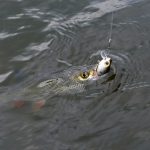Understanding State Fishing Regulations
If youre planning to fish across state lines in the U.S., its important to know that fishing laws can vary a lot from one state to another. Each state has its own Department of Fish and Wildlife (or similar agency) that sets rules on licenses, seasons, size limits, and catch limits. These laws are designed to protect local fish populations and ensure sustainable fishing for future generations.
Why Do States Have Different Rules?
Fishing regulations are based on each states unique ecosystems, fish species, and conservation goals. What’s legal in one state might be illegal just a few miles away. For example, you might be allowed to keep five trout per day in Colorado, but only two in California. Some states also have specific rules for different bodies of water within the same state.
Key Differences You Might Encounter
| State | License Requirement | Daily Bag Limit | Fishing Season |
|---|---|---|---|
| Texas | Resident/Non-resident license required | 5 Bass per day | Year-round (some exceptions) |
| Florida | Separate freshwater & saltwater licenses needed | 8 Black Crappie per day | Open season with specific closures |
| Minnesota | Special license needed for border waters | 6 Walleye per day | May through February |
The Importance of Following Local Guidelines
If youre caught fishing without the proper license or breaking local laws, you could face fines, gear confiscation, or even criminal charges. It’s not just about avoiding penalties—following the rules helps protect fish populations and keeps fishing accessible for everyone. Always check the latest regulations on each states official Fish and Wildlife website before your trip.
Helpful Tip:
Many states offer mobile apps or online tools where you can buy licenses, check regulations, and even report catches. This makes it easier than ever to stay legal and informed while on the go.
In short, understanding and respecting each states fishing laws is the first step to enjoying a successful multi-state fishing trip.
2. Licensing Requirements and Reciprocity Agreements
If youre planning to fish across state lines in the U.S., understanding fishing license requirements is a must. Every state has its own rules, fees, and regulations when it comes to recreational fishing. Heres what you need to know before you pack up your gear and hit the road.
State-by-State Fishing License Requirements
Most states require anglers aged 16 and over to have a valid fishing license, whether youre fishing in freshwater or saltwater. However, age limits, license types, and fees vary depending on where you are. Heres a quick overview of how some states compare:
| State | Resident License Fee | Non-Resident License Fee | Minimum Age for License |
|---|---|---|---|
| Texas | $30 | $58 | 17+ |
| Florida | $17 (Freshwater) | $47 (Freshwater) | 16+ |
| California | $61.82 | $178.20 | 16+ |
| Georgia | $15 | $50 | 16+ |
| Minnesota | $25 | $51 | 16+ |
Make sure to check the official website of the state’s Department of Natural Resources (DNR) or Fish & Wildlife agency for the most up-to-date information.
What Are Reciprocity Agreements?
A reciprocity agreement allows anglers to use their home-state fishing license in neighboring states under specific conditions. These agreements are especially helpful if you live near a state border or plan to fish in shared waters like rivers or lakes that span multiple states.
Examples of Reciprocity Agreements
- Kentucky and Indiana: Both states allow residents with valid licenses to fish in the Ohio River along the border without needing an additional license.
- Maryland and Virginia: These states have a reciprocal agreement for tidal waters like the Chesapeake Bay, allowing licensed anglers from either state to fish without buying an extra license.
- Tennessee and North Carolina: These two states share access to certain border waters such as Watauga Lake, under special licensing agreements.
Important Notes on Reciprocity
- You must follow the fishing regulations (such as catch limits and gear restrictions) of the state where youre physically fishing, even if your license is from another state.
- Not all water bodies are covered under reciprocity agreements—be sure to confirm with local authorities before casting your line.
- If youre unsure, contacting the states wildlife agency is always a safe bet.
The bottom line? Always do your homework on licensing and reciprocity rules before planning a multi-state fishing trip. It’ll save you from fines—and help you enjoy more time doing what you love: fishing!

3. Navigating Border Waters
Fishing in waters that span more than one state—like the Mississippi River or Lake Tahoe—can be a bit tricky. These “border waters” often have special agreements between states, but its important to know the rules before casting your line. Heres what you need to know to stay legal while enjoying these shared fishing spots.
Understanding Shared Waterway Agreements
Some states have reciprocal agreements, which means a fishing license from one state may be valid on certain shared bodies of water. However, these agreements vary by location and sometimes even by fish species. Always double-check with both states wildlife agencies.
Examples of Shared Waterways and Rules
| Waterway | States Involved | License Agreement | Notes |
|---|---|---|---|
| Mississippi River | Minnesota & Wisconsin Iowa & Illinois Missouri & Illinois |
Reciprocal in designated zones | Anglers must follow the regulations of the state they are physically fishing from. |
| Lake Tahoe | California & Nevada | No reciprocal agreement | You need a separate fishing license for each state, depending on where you fish. |
| Pend Oreille River | Washington & Idaho | Reciprocal in some areas | Limits and seasons may differ; check local guidelines. |
Tips for Fishing Border Waters Legally
- Know where you are: GPS apps can help determine which state youre in while on the water.
- Follow the stricter rule: If rules differ between states, it’s safest to follow the more restrictive regulation.
- Carry proper licenses: Some anglers choose to carry licenses for both states to avoid any issues.
- Check bag limits and seasons: Even if licenses are valid across borders, daily limits and open seasons may not be the same.
How to Check Local Regulations
The best way to ensure youre fishing legally is by visiting the official websites of both states’ fish and wildlife departments. Most provide clear information about border water rules and whether any reciprocal agreements exist. You can also call local ranger stations or bait shops—they’re usually up-to-date with current regulations.
Helpful Links:
- Minnesota Department of Natural Resources
- California Department of Fish and Wildlife
- Nevada Department of Wildlife
- Wisconsin DNR Fishing Page
If you plan ahead and do your homework, you can enjoy fishing in beautiful border waters without worrying about breaking any laws. Just remember: when in doubt, ask!
4. Transporting Fish Across State Lines
Once youve had a successful fishing trip, you might be tempted to bring your catch home across state lines. But before you load up the cooler, its important to understand the legal requirements and best practices involved in transporting fish between states.
Know the Laws of Both States
Each state has its own regulations for what species can be legally transported, how much you can carry, and how the fish must be stored. Even if a fish is legal in the state where it was caught, it may be considered invasive or restricted in another.
Key Questions to Ask:
- Is the species allowed in both the state you fished in and the state youre traveling to?
- Are there possession limits that apply during transport?
- Does the fish need to be cleaned or processed before transport?
Invasive Species Regulations
Transporting live fish or water from one state to another can accidentally spread invasive species like zebra mussels or Asian carp. Many states have strict rules against moving live baitfish or even water from one body of water to another.
Common Invasive Species Rules by State:
| State | Live Fish Transport | Bait Restrictions |
|---|---|---|
| Minnesota | Not allowed without permit | No transport of water with baitfish |
| Texas | Restricted species list applies | No live bait from certain lakes |
| California | Highly regulated by region | Baitfish must come from licensed dealers |
Documentation You Might Need
If youre stopped by a game warden or other official, youll want to have proof that your fishing activities were legal. This can include:
- Your fishing license(s) for each state involved
- A receipt or documentation from a charter service, if applicable
- A record of where and when the fish were caught (some anglers use logbooks)
- Permits for restricted or controlled species, if required
Best Practices for Transporting Fish Legally
- Always drain live wells and coolers before crossing state lines unless permitted otherwise.
- If possible, clean and fillet your catch before transport—just make sure it’s still identifiable if required by law.
- Label your containers clearly with your name, date of catch, and location.
- Avoid transporting live fish unless absolutely necessary and legal.
- Check online with both states fish and wildlife departments for updates before your trip.
Tip:
A quick call to local wildlife officials can save you from hefty fines—don’t rely on outdated info from forums or friends.
By understanding and respecting these laws, you’ll help protect local ecosystems while keeping your fishing adventures trouble-free.
5. Tips and Tools for Multi-State Anglers
Fishing across state lines can be a rewarding experience, but it also means juggling different regulations, permits, and waterway rules. Whether youre planning a road trip or entering a multi-state fishing tournament, staying compliant and organized is key. Here are some helpful resources, mobile apps, and planning tips to keep you on track.
Helpful Resources for Legal Fishing Across States
Before you head out, make sure youre using reliable sources to check fishing laws and license requirements in each state. Heres a list of official websites:
| State | Official Wildlife/Fishing Website |
|---|---|
| California | wildlife.ca.gov/Fishing |
| Texas | tpwd.texas.gov/fishboat/fish/ |
| Florida | myfwc.com/fishing/ |
| New York | dec.ny.gov/outdoor/fishing.html |
| Minnesota | dnr.state.mn.us/fishing/ |
Top Mobile Apps for Multi-State Anglers
Smartphones are your best friends on the water. These apps can help you track regulations, log catches, and even find new spots to fish:
- Fishbrain: Offers local fishing forecasts, maps, and catch data from millions of anglers.
- iFish USA: State-by-state fishing guides with lake maps, weather conditions, and regulation info.
- MyFWC App (Florida): Specific to Florida but handy if your trip includes the Sunshine State.
- Tacklebox by Bassmaster: Great for tournament anglers — includes gear checklists and event news.
- OnX Hunt & Fish: Originally made for hunters, but useful for viewing public vs. private land boundaries when choosing fishing spots.
Planning Tips for Multi-State Fishing Trips or Tournaments
A little prep work goes a long way when it comes to multi-state angling. Use these tips to stay legal and stress-free:
Create a Fishing Itinerary
- List all states youll fish in and their respective license requirements.
- Check if any states have reciprocal agreements (e.g., bordering states that honor each other’s licenses).
- Add backup locations in case weather or conditions change.
Keep Digital & Physical Copies of Licenses
- Many states allow digital copies via their official apps — always keep screenshots just in case.
- Laminated paper copies stored in your tackle box or glove compartment are also smart backups.
Stay Updated on Regulation Changes
- Laws can change mid-season. Subscribe to email alerts from each states wildlife agency.
- If joining a tournament, double-check that organizers provide up-to-date legal info for each location.
Pack Smart with State-Specific Gear Rules in Mind
- Certain states ban specific bait types or hook sizes — know before you go.
- If traveling across fly-fishing zones vs. bait zones, organize your gear accordingly.
A successful multi-state fishing adventure starts with good research and solid tools. With the right resources at your fingertips, you’ll spend less time worrying about rules—and more time reeling in big ones!

